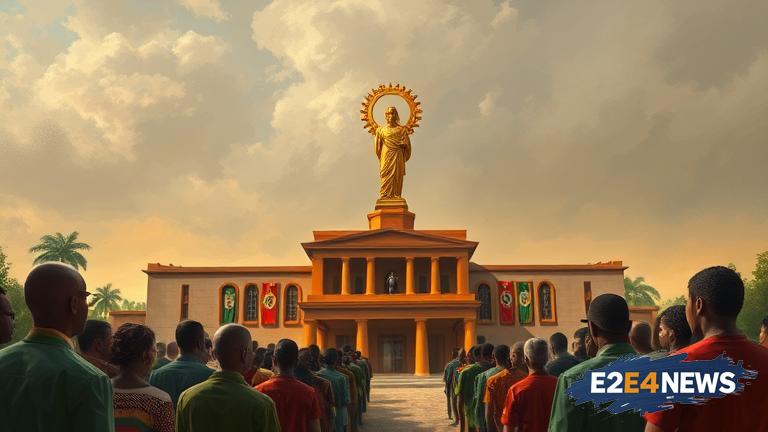The Constitutional Court of Zambia has made a significant ruling in the ongoing dispute over the burial of former President Edgar Lungu. The court declined a direct appeal in the matter, stating that it lacks the jurisdiction to hear the case. This decision has sparked widespread debate and discussion in the country, with many Zambians weighing in on the issue. The dispute began when the family of the late president requested that he be buried in the capital city of Lusaka, while the government insisted that he should be laid to rest in his hometown of Chawama. The family argued that the government’s decision was a violation of their rights and an attempt to undermine the former president’s legacy. However, the government maintained that the burial should take place in accordance with traditional customs and practices. The Constitutional Court’s decision has been seen as a major setback for the Lungu family, who had hoped to have the matter resolved through the courts. The court’s ruling has also raised questions about the role of the judiciary in resolving disputes of this nature. Many have argued that the court should have exercised its discretion and heard the appeal, given the public interest in the matter. Others have praised the court for upholding the principles of jurisdiction and refusing to be drawn into a political dispute. The Lungu family has announced that it will appeal the decision to the Supreme Court, citing concerns about the fairness and impartiality of the judicial process. The government has welcomed the court’s decision, stating that it is a victory for the rule of law and the constitution. The burial dispute has highlighted the deep divisions within Zambian society, with many people taking to social media to express their opinions on the matter. The issue has also sparked a wider debate about the role of traditional leaders and customs in modern Zambia. Some have argued that the government’s decision to bury the former president in his hometown is a reflection of the country’s commitment to its cultural heritage. Others have seen it as an attempt to undermine the authority of the Lungu family and the legacy of the former president. The dispute has also raised questions about the management of the former president’s estate and the distribution of his assets. The Lungu family has accused the government of attempting to seize control of the estate and deny them their rightful inheritance. The government has denied these allegations, stating that it is simply following the law and ensuring that the former president’s assets are distributed in accordance with his wishes. The burial dispute has been a major news story in Zambia, with many newspapers and online publications covering the issue in depth. The story has also attracted international attention, with many foreign journalists and observers weighing in on the matter. The Constitutional Court’s decision is likely to be seen as a significant test of the country’s judicial system and its ability to resolve complex and sensitive disputes. The court’s ruling has also highlighted the need for greater clarity and consistency in the application of the law, particularly in cases involving high-profile individuals and sensitive cultural issues. The Lungu family’s decision to appeal the decision to the Supreme Court is likely to prolong the dispute and keep the issue in the headlines for many weeks to come. The government has stated that it will respect the decision of the Supreme Court, whatever it may be. The burial dispute has been a major challenge for the government of President Hakainde Hichilema, who has faced criticism for his handling of the issue. The president has stated that he is committed to upholding the rule of law and respecting the rights of all Zambians, including the Lungu family. The dispute has also raised questions about the role of the opposition in Zambia, with some arguing that they have exploited the issue for political gain. The opposition has denied these allegations, stating that they are simply seeking to uphold the rights of the Lungu family and ensure that justice is served. The burial dispute is likely to remain a major issue in Zambian politics for many months to come, with the Supreme Court’s decision likely to be seen as a major turning point in the saga.
